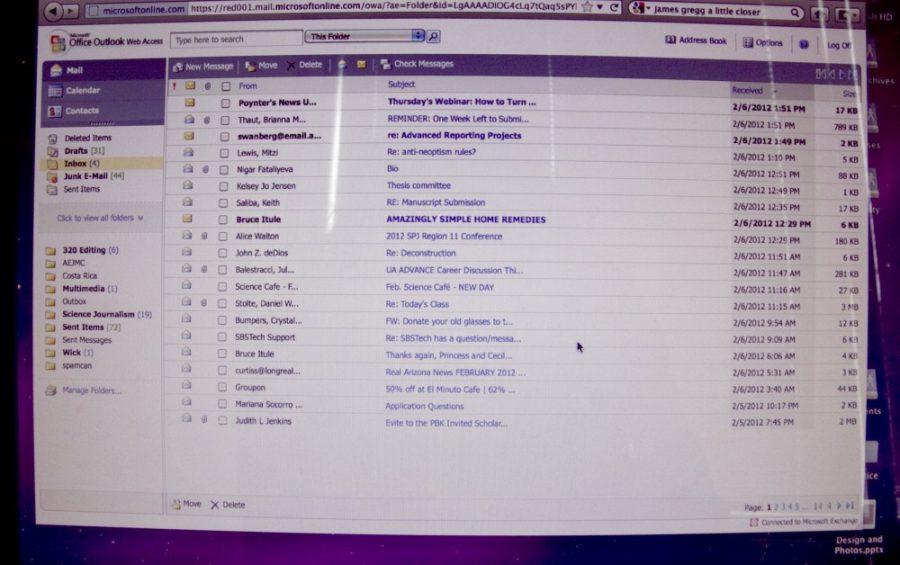University Information Technology Services will migrate all staff and employees to its own email and calendar system some time this semester, aiming to give them more control over their information through the UA instead of Microsoft.
Rather than purchasing the mailing software system from Microsoft, UITS will now employ its own cloud system, giving users more local control of their online environment and configuration in the interest of all staff and employees, according to Derek Masseth, senior director of client and infrastructure services for UITS.
With all UA staff and employees’ accounts on the same system, users will be on the same calendar system and have all of the same features, such as sharing calendars between users, said Julie Suess, information technology project manager for UITS.
“Doing this ourselves with this platform, we can deliver the same features and functionality needs to all users regardless of what their choice is,” Masseth said.
Before this, the university was running on a system developed by Microsoft, under an agreement that Microsoft maintained. That was later replaced by Business Productivity Online Suite, because Macintosh users did not have the same capabilities as PC users, Masseth said. Now these two systems have both been replaced by the on-campus system. This will allow the university to have control over the system policies and solve any problems that might occur rather than having to go to Microsoft representatives, he said.
The new on-campus system will include a more efficient and enhanced email software, Masseth said. The biggest difference between the old and new system is the ability to support the specific needs of the university and the flexibility to provide Macintosh users with the same features as Windows users, Masseth added.
“The biggest feature we are bringing is the ability to support the broad base of the clients at the UA,” Masseth said.
Even with the added features and other improvements, the costs of the on-campus system to the previous system are similar.
The university will continue to have a partnership with Microsoft, but the email servers system will no longer be pursued through the company.









